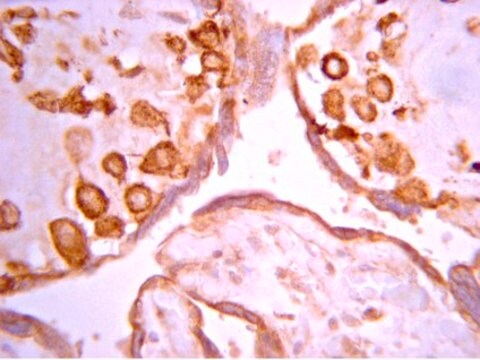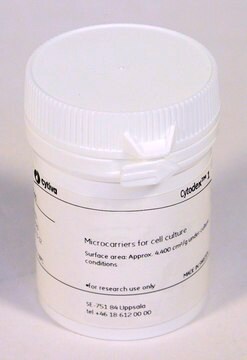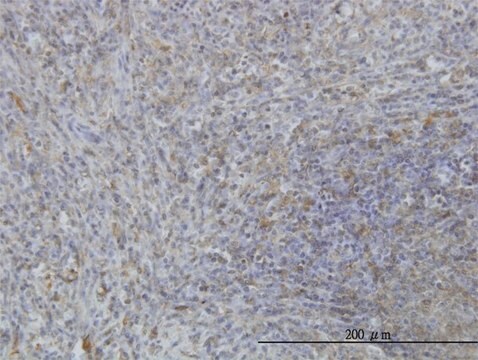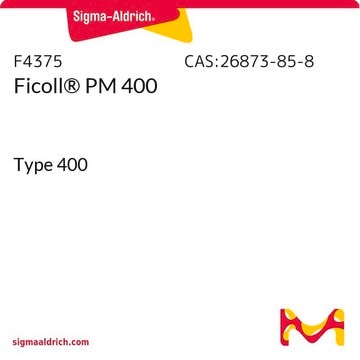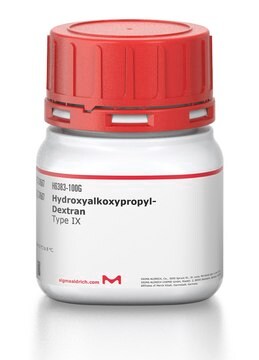P0370
Anti-phospho-Myristoylated Alanine-Rich Protein Kinase C Substrate (pSer152/156) antibody produced in rabbit
affinity isolated antibody, buffered aqueous glycerol solution
Synonym(s):
Anti-phospho-MARCKS (pSer152/156)
About This Item
Recommended Products
biological source
rabbit
Quality Level
conjugate
unconjugated
antibody form
affinity isolated antibody
antibody product type
primary antibodies
clone
polyclonal
form
buffered aqueous glycerol solution
mol wt
antigen 80 kDa
species reactivity
rat, human, mouse
technique(s)
western blot: 1:1000
UniProt accession no.
shipped in
dry ice
storage temp.
−20°C
Gene Information
human ... MARCKS(4082)
mouse ... Marcks(17118)
rat ... Marcks(25603)
General description
Anti-phospho-MARCKS (pSer152/156) specifically recognizes MARCKS (80 kDa) phosphorylated at serine 152/156.
Immunogen
Application
Physical form
Disclaimer
Not finding the right product?
Try our Product Selector Tool.
Storage Class Code
10 - Combustible liquids
Certificates of Analysis (COA)
Search for Certificates of Analysis (COA) by entering the products Lot/Batch Number. Lot and Batch Numbers can be found on a product’s label following the words ‘Lot’ or ‘Batch’.
Already Own This Product?
Find documentation for the products that you have recently purchased in the Document Library.
Our team of scientists has experience in all areas of research including Life Science, Material Science, Chemical Synthesis, Chromatography, Analytical and many others.
Contact Technical Service